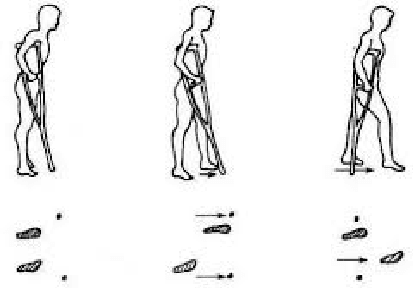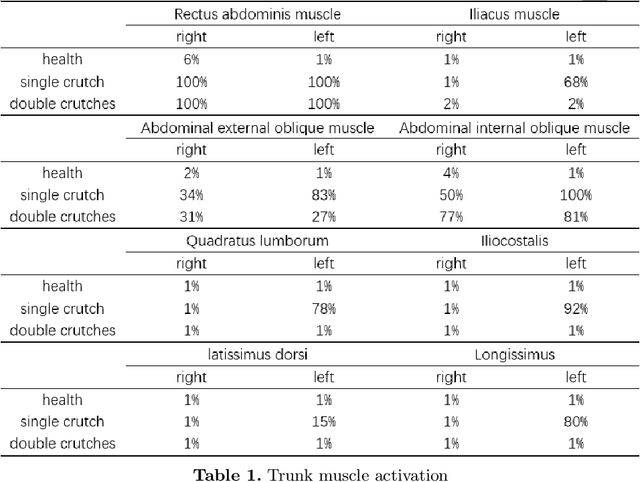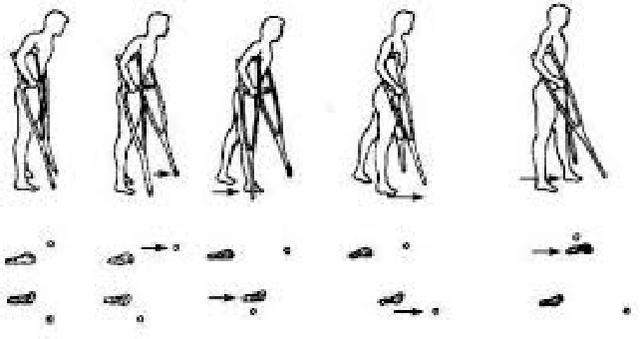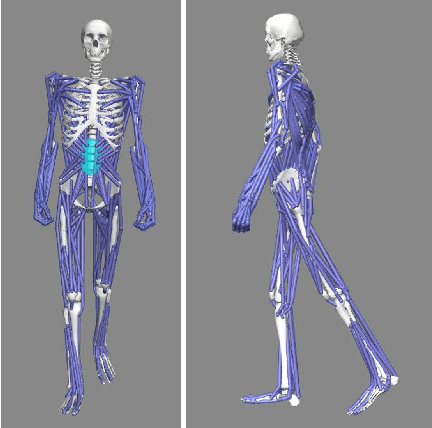Evaluating the Effect of Crutch-using on Trunk Muscle Loads
Paper and Code
Aug 25, 2020



As a traditional tool of external assistance, crutches play an important role in society. They have a wide range of applications to help either the elderly and disabled to walk or to treat certain illnesses or for post-operative rehabilitation. But there are many different types of crutches, including shoulder crutches and elbow crutches. How to choose has become an issue that deserves to be debated. Because while crutches help people walk, they also have an impact on the body. Inappropriate choice of crutches or long-term misuse can lead to problems such as scoliosis. Previous studies were mainly experimental measurements or the construction of dynamic models to calculate the load on joints with crutches. These studies focus only on the level of the joints, ignoring the role that muscles play in this process. Although some also take into account the degree of muscle activation, there is still a lack of quantitative analysis. The traditional dynamic model can be used to calculate the load on each joint. However, due to the activation of the muscle, this situation only causes part of the load transmitted to the joint, and the work of the chair will compensate the other part of the load. Analysis at the muscle level allows a better understanding of the impact of crutches on the body. By comparing the levels of activation of the trunk muscles, it was found that the use of crutches for walking, especially a single crutch, can cause a large difference in the activation of the back muscles on the left and right sides, and this difference will cause muscle degeneration for a long time, leading to scoliosis. In this article taking scoliosis as an example, by analyzing the muscles around the spine, we can better understand the pathology and can better prevent diseases. The objective of this article is to analyze normal walking compared to walking with one or two crutches using OpenSim software to obtain the degree of activation of different muscles in order to analyze the impact of crutches on the body.
 Add to Chrome
Add to Chrome Add to Firefox
Add to Firefox Add to Edge
Add to Edge